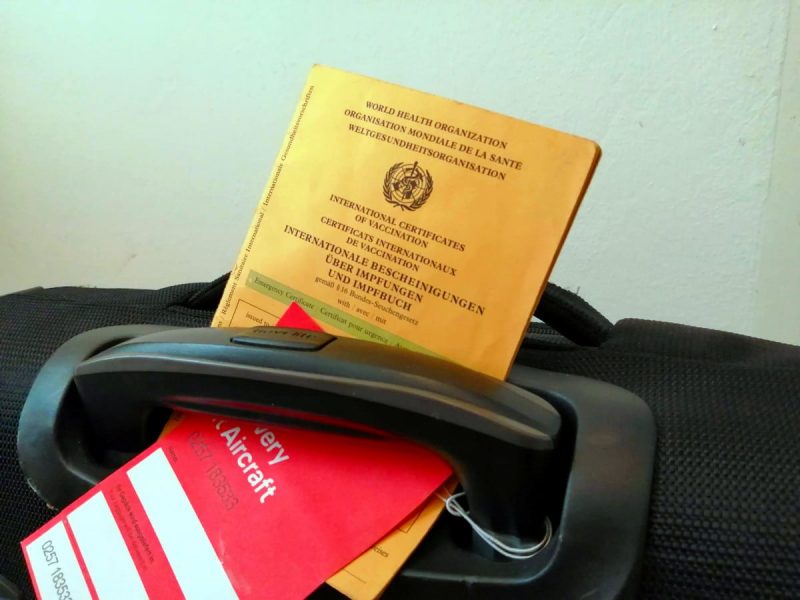Health Minister Wolfgang Mückstein (Greens) published the new entry requirements for Austria on Monday evening. These come into force on Wednesday at midnight and will provisionally apply until June 30, 2021. Until then, an evaluation will be carried out to determine whether restrictions will be necessary afterwards.
“In many countries, the number of infections is falling, so we can also make it easier for people to enter Austria in parallel to the opening steps in the country. The pivotal point of this regulation is also the 3-G proof: Proof of vaccination, testing or recovery is a prerequisite for each type of entry. All vaccinations that have been approved by the EMA or have successfully passed the relevant WHO process are recognized as proof of vaccination. When entering from high-incidence areas, quarantine must also be taken, for virus variant states even stricter rules apply, "said Mückstein in a statement.
The latest amendment to the entry regulation provides for three new categories:
1. Entry from countries with a low incidence of infection (Appendix A): 3-G rule, no quarantine
These states are summarized in Appendix A; Both EU / EEA countries and third countries with a low incidence are taken into account. Any type of entry is possible from these countries, including for tourist purposes.
Current 3G proof is required for entry. If this cannot be presented, a test must be carried out immediately, but in any case within 24 hours. A document issued in German or English (e.g. yellow vaccination pass) about a vaccination that has been approved by the EMA or has successfully passed the EUL process of the WHO counts as proof of vaccination. A medical or official confirmation (e.g. separation notice) in German or English about an infection that has been overcome in the past six months is considered a recovery certificate. Proof of neutralizing antibodies is equivalent to the recovery certificate, which may not be more than 3 months old when entering the country.
The following states are currently on Annex A:
Andorra, Australia, Belgium, Bulgaria, Denmark, Germany, Estonia, Finland, France, Principality of Liechtenstein, Greece, Ireland, Iceland, Israel, Italy, Latvia, Luxembourg, Malta, Monaco, New Zealand, Norway, Poland, Portugal, Romania, San Marino, Singapore, Slovakia, Slovenia, Spain, Switzerland, South Korea, Czech Republic, Hungary, Vatican.
2. Entry from risk countries (Annex B1): 3-G rule, test with quarantine
When entering from high-incidence states, a 3-G certificate must be presented. If no evidence is provided, a test must be carried out immediately, but in any case within 24 hours.
Vaccinated or recovered people do not have to enter quarantine when entering from risk countries, but those who have been tested do. This can be ended from day 5 after entry (day of entry = 0) with a new negative test result.
Appendix B1: Croatia, Lithuania, Netherlands, Sweden, Cyprus
3. Entry from virus variant states (Annex B2): PCR test and quarantine
Entry from virus variant states (Annex B2, currently Brazil, India and South Africa) is, as before, only possible to a very limited extent. In essence, only Austrian citizens and persons with residence or habitual abode in Austria are allowed to enter. Entry for humanitarian reasons or in the urgent interest of the republic is also possible.
For people who come from a virus variant area or who have stayed in one in the past ten days, the following applies as before: Entry is only possible with a negative molecular biological test result (e.g. PCR). The obligation to test also applies to vaccinated and recovered people. Austrians and people residing in Austria who have been in a virus variant state in the past 10 days are allowed to enter the country, but must do a PCR test within 24 hours. This is controlled by the health authorities.
Appendix B2: Brazil, India, South Africa
The ordinance banning aircraft from South Africa, Brazil and India from landing has been extended up to and including June 6th.
States that are not listed, only in exceptional cases
Entry from other countries that cannot be found on Annex A, B1 or B2 is generally prohibited and, as before, only possible in exceptional cases - for work or study purposes, for example. In any case, a 3-G proof must be provided upon entry. Vaccinated or recovered people do not have to go into quarantine upon entry, but those who have been tested do. This can be ended from day 5 after entry (day of entry = 0) with a new negative test result.
The exceptions for commuters remain unchanged and still do not apply to entry from virus variant areas.
Children aged 10 and over need corona tests
Children from 10 years of age must be tested, including the immunity level of the parents or the authorized supervisors. The quarantine obligation generally also applies to children, but does not apply if the parents or authorized supervisors are exempt from quarantine.
Entry registration is still necessary
In principle, an electronic registration is required before each entry https: //entry.ptc.gv.at/ necessary. This must be done 72 hours before entry at the earliest; commuters must renew it every 28 days.
The amendment to the Entry Ordinance comes into force on Wednesday, May 19.5, at midnight and is initially valid up to and including June 0, 30.6.2021.







 trail (for them it's free to use)
trail (for them it's free to use)